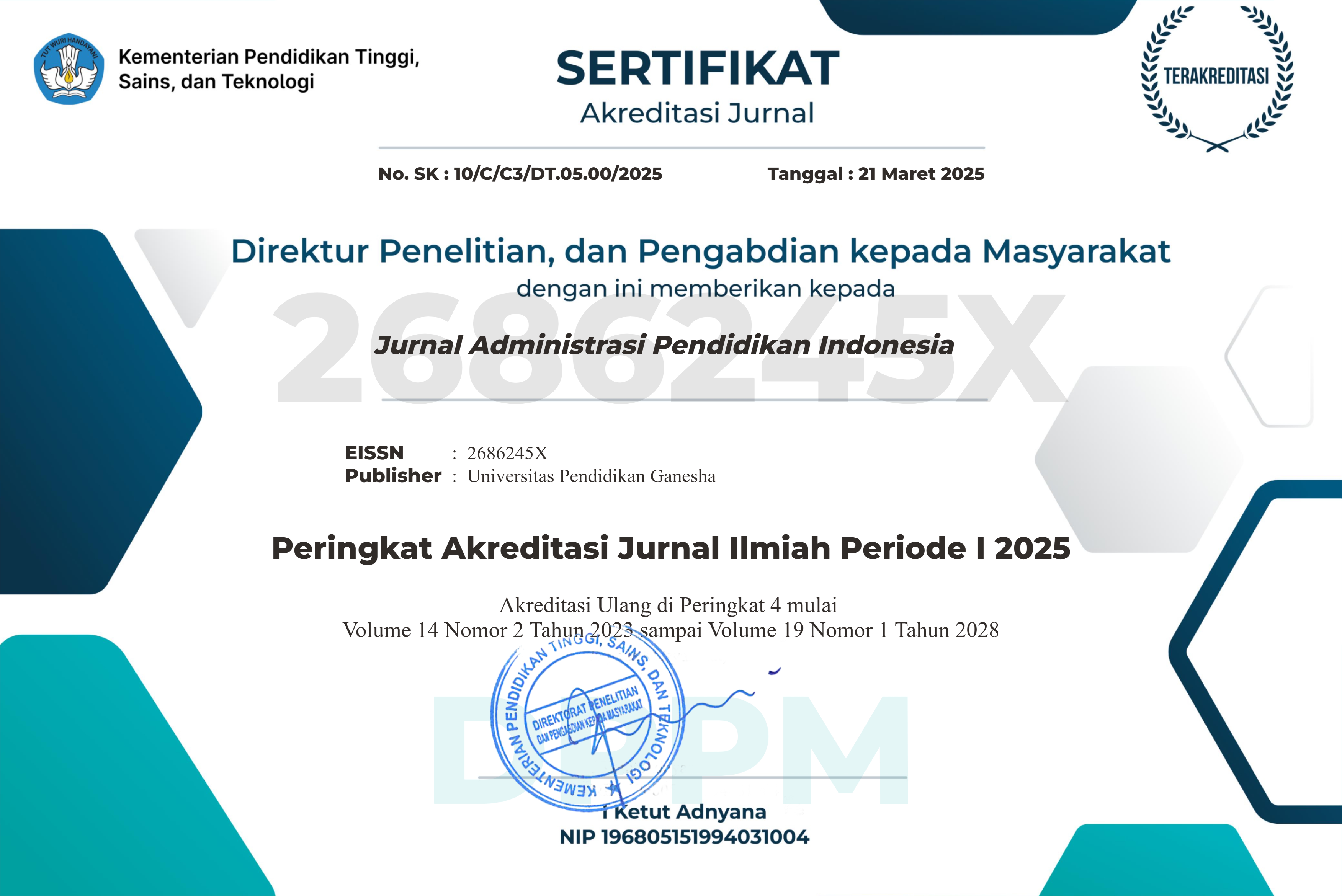Difficulty Factors for Students In Completing Thesis In The Educational Era of Health and Health Program FKIP University of PGRI Mahadewa Indonesia In The Adaptation Era New Habits In 2021
DOI:
https://doi.org/10.23887/jurnal_ap.v12i2.618Keywords:
student difficulties, writing thesis, era of adaptation to new habitsAbstract
This study aims to determine the difficulty factors of the Penjaskesrek Study Program students, FKIP, Universitas PGRI Mahadewa Indonesia when compiling a thesis in the era of adaptation of new habits in 2021. This research is included in a qualitative descriptive study, with a population of 47 students who take thesis courses in the semester. 8 academic years 2020/2021 and the research sample using the case study method was taken as many as 7 students who had not completed the thesis course in the 8th semester of the 2020/2021 academic year. The data collection technique is triangulation (combined), the data analysis is inductive/qualitative, and the results of qualitative research emphasize meaning rather than generalization. Based on the results of the study, it was found that the difficulty of writing a thesis in terms of internal factors, including health, motivation, busyness, ability to write thesis and time management. Meanwhile, from external factors, namely family, peers, thesis administration, references, and guidance methods in the era of adapting new habits. The dominant internal factors that affect the difficulty of thesis preparation are the busyness factor and the ability to write student thesis, while the dominant external factor influencing the preparation of student thesis is family factors, especially in terms of economics and online guidance in the era of adapting new habits.
References
Jakarta: Departemen Pendidikan Nasional Dierktorat Jendral Pendidikan
Tinggi Direktorat Ketenagaan.
Asmawan, Moh. Chairil. 2016. Analisis Kesulitan Mahasiswa Menyelesaikan Skripsi. Journal-UMS, 20(2), 3331-7222.
Burhan, Nurgiyantoro. 2001. Penilaian dalam Pengajaran Bahasa dan Sastra.
Yogyakarta: BPFE Yogyakarta.
Gunawan, Moh. Ali. 2013. Statistik untuk Penelitian Pendidikan. Yogyakarta. Parama Publishing.
Hariyati, Rini Maryuni. 2012. Survey Kinerja Dosen Pembimbing Skripsi dan Kualitas Skripsi Mahasiswa Akutansi STIE Malakucecwara. Semarang. UNS.
Huda, Miftahul. 2011. Cooperative Learning, Metode, Teknik, dan Penerapan. Yogykarta: Pustaka Pelajar.
Huclock, Elizabeth. 1978. Perkembangan Anak Edisi 11 Jilid 1. Jakarta: Erlangga.
KBBI, 2016. Kamus Besar Bahasa Indonesia (KBBI). (Online)
Kemenkes RI. 2020. Situasi Terkini Perkembangan Coronavirus Disease (COVID-19)8 Mei 2020. Jakarta. https://www.kemkes.go.id
Mangkunegara, Anwar Prabu (2017). Manajemen Sumber Daya Manusia Perusahaan. Cetakan 14. Bandung: PT. Remaja Rosdakarya.
Moleong, Lexy. 2011. Metodologi Penelitian Kualitatif. Bandung: Rosdakarya.
Nurgiyantoro. 2002. Teori Pengkajian Fiksi. Yogyakarta: UGM Press.
Prayitno. 2004. Layanan Bimbingan Kelompok Dan Konseling Kelompok.
Padang: Universitas Negeri Padang.
Samsudin, M.M., M.Pd, Dra. H. Salidi. 2010. Manajemen Sumber Daya Manusia. Bandung: Pustaka Setia.
Santoso, Slamet. 2004. Dinamika Kelompok. Jakarta: PT Bumi Aksara.
Sedarmayanti, M.Pd,. APU. 2009. Sumber Daya Manusia dan Produktivitas Kerja. Bandung: Mandar Maju.
Stuart,G.W.,Sundden, S. J. 2014. Buku Saku Keperawatan Jiwa (5th ed.). jakarta:
EGC.
Sugiyono. Prof. Dr. 2015. Metode Penelitian Tindakan Komprehensif. Bandung: Alfabeta.
Sugiyono. 2016. Metode Penelitian Kuantitatif, Kualitatif dan R & D. Bandung: Alfabeta.
Sutrisno, Edy. 2019. Manajemen Sumber Daya Manusia. Jakarta: Prenamedia Group Divisi Kencana.
Tarigan, Henry Guntur. 2008. Menulis sebagai Suatu Keterampilan Berbahasa. Bandung: Penerbit Angkasa.
Tim Penyusun Pedoman Akademik. 2020. Peraturan Rektor tentang Pedoman Akademik Universitas PGRI Mahadewa Indonesia. Denpasar.
Widi, Restu Kartiko. 2010. Asas Metodologi Penelitian Sebuah Pengenalan dan Penuntun Langkah demi Langkah Pelaksanaan Penelitian. Yogyakarta: Graha Ilmu.











